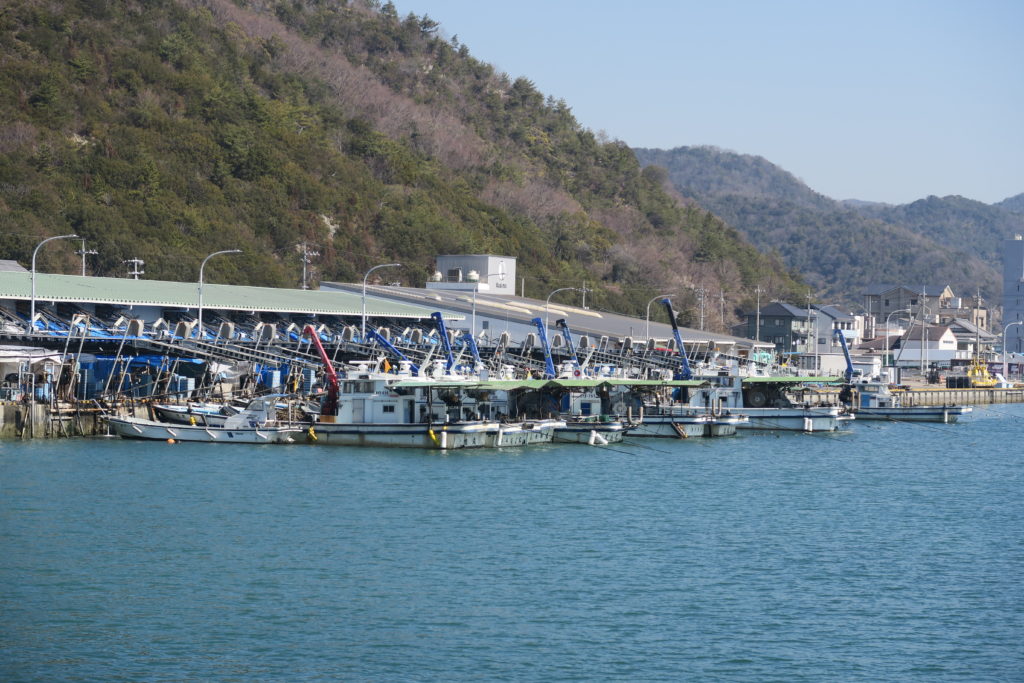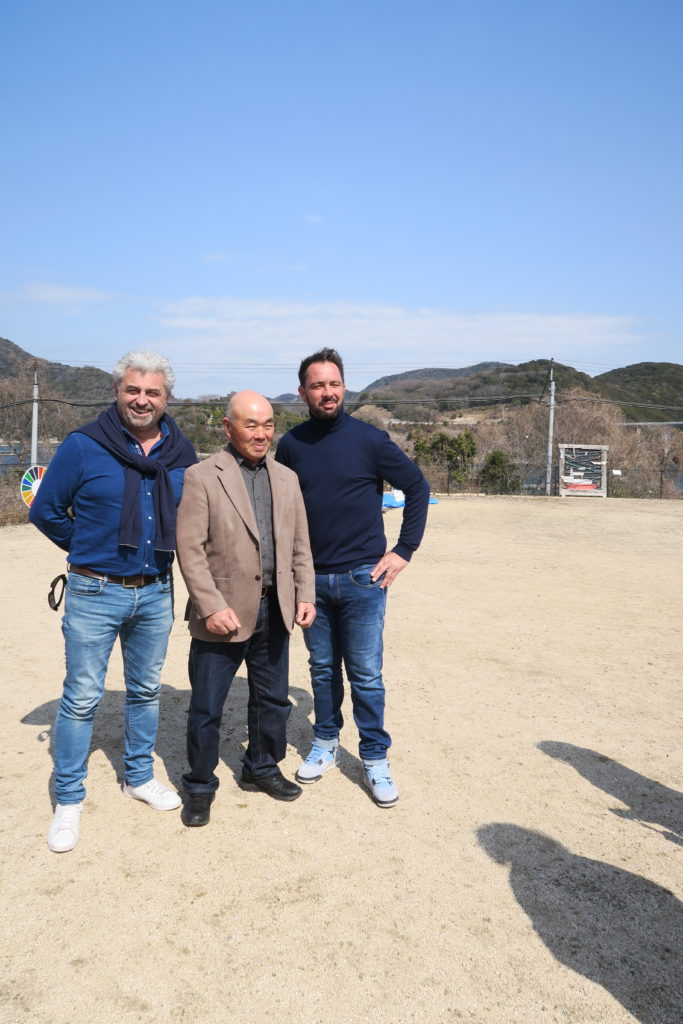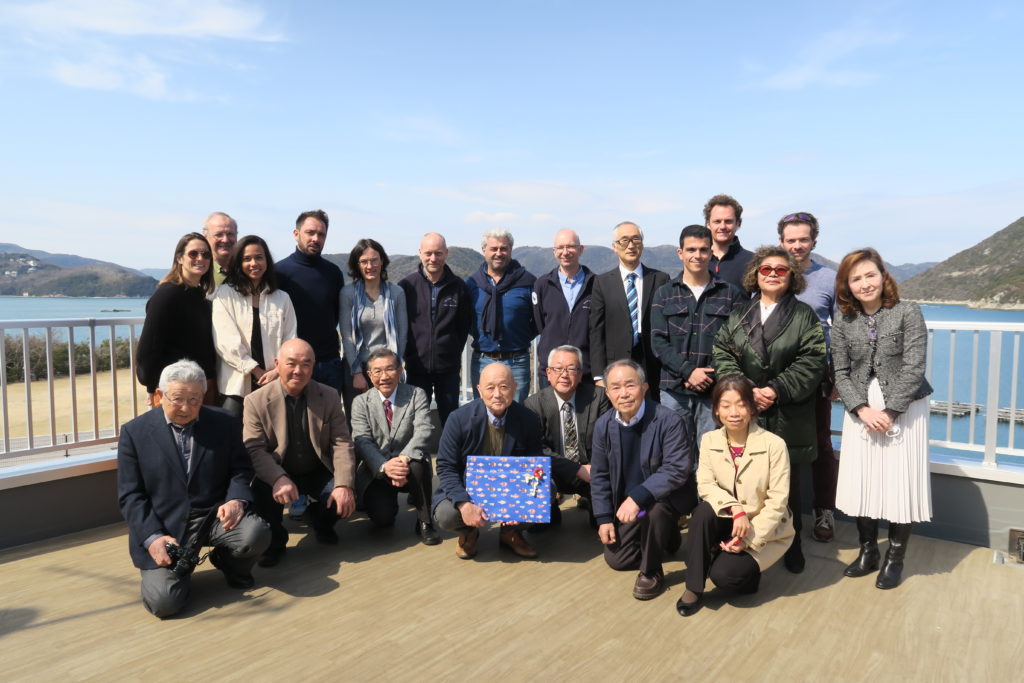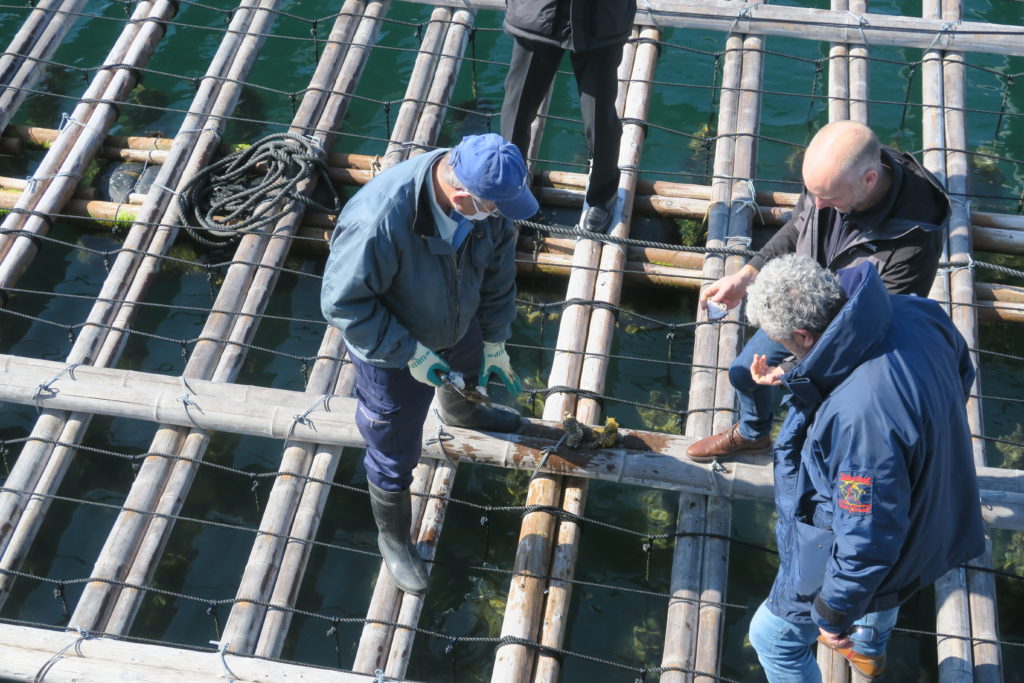Mission in the Seto Inland Sea (From the 25th of February to the 5th March 2023)
This mission had been scheduled shortly after the 17th Franco-Japanese Symposium of Oceanography (COAST Bordeaux 2017 – Evolution systémique et de la biodiversité des environnements côtiers et littoraux sous la pression du changement climatique, des facteurs naturels et anthropiques locaux (socfjp.com) organized in November 2017 by the two French-Japanese Oceanography Societies France and Japan, the CNRS (National Center for Scientific Research) and the University of Bordeaux in partnership with many organizations including the Parc Naturel Marin du Bassin d’Arcachon (PNMBA).
Postponed several times due to the Covid-19 pandemic, the mission was scheduled from February 25 to March 5, 2023 by the PNMBA and organized by the OFB (French Office for Biodiversity) with the support of the two SFJOs France and Japan, the Comité Régional de la Conchyliculture de Nouvelle-Aquitaine and the DLAL FEAMP of the Pays BARVAL. The French delegation was conducted by the mayor of Mios, Mr. Cédric Pain, president of the management board of the marine park.
The mission, which took place in the Seto Inland Sea in the Okayama and Hiroshima regions, focused on the development of cooperation projects in the fields of oyster farming and restoration of eelgrass beds.

The SFJOs brought their experiences and expertises in the field of the integrated approach and the Sato-umi concept developed in this same area by the Professor Yanagi (http://colloquebordeaux2017.socfjp.com/wp-content/uploads/2017/11/YanagiTetsuo.pdf ) . Professor Osamu Matsuda, vice-president of EMECS International (Environmental Management of Enclosed Seas) was present and explained what this concept represents.
Actors of the Parc Naturel Marin du Bassin d’Arcachon, the oyster farmers represented by their president, Mr. Olivier Laban and their vice-president, Mr. Matthieu Perucho, made concrete proposals to nourish the oyster farming cooperation between France and Japan.
On the side of the Japanese oyster farmers, Mr. Masanori Hatakeyama, president of the Karakuwa fisheries cooperative in the Miyagi prefecture, accompanied by Dr. Tetsuo Seki, a specialist in oyster farming in this region, also came with concrete proposals for cooperation.

The rest of the Japanese delegation was composed of Mr. Takehiro Tanaka (Director of the Satoumi Research Institute), who is the leading figure in the restoration of the seagrass beds in the Seto Sea; Professor Yasayuki Koike, a fine specialist in French and Japanese oyster farming; and Professor Teruhisa Komatsu, President of the SFJO Japan. Professor Kazumi Wakita from Tokay University, a renowned socio-economist, completed the Japanese delegation. SFJO France was represented by its president, Dr. Patrick Prouzet.

The aim of this mission was to set up a sustainable and sustained cooperation between Japanese and French oyster farmers, to develop exchanges and cooperation between the Parc Naturel Marin du Bassin d’Arcachon and the Satoumi Research Institute on the restoration of eelgrass beds, and for the two SFJOs to facilitate and support the implementation of projects inspired by the concept of Sato-umi (marine village)
Professor Kazumi Wakita showed in her presentation the divergence between the desires of the younger and older age groups regarding the evolution of their natural environment and the opposition between “living well socially and economically in the country” for the young people who want jobs and the elders who wish to peacefully enjoy “a preserved environment”.
The experience of the Seto Inland Sea clearly indicates that there is no opposition between the development of fishing and oyster farming and the restoration of seagrass beds, quite the contrary. The existence of these traditional activities that strengthen the identity of the territories is necessary to carry out this restoration by involving the local communities. The use of oyster shells to allow a better implantation of eelgrass sprouts is a particularly remarkable example of the use of an oyster by-product which allows an improvement of the substrate for the development of the seagrass beds in the Seto Inland Sea. Similarly, the actions of oyster farmers in the Arcachon Basin to limit the development of wild oyster beds, which modifies the environment and limits the growth of farmed oysters, are interventions that allow better use of the productivity of a semi-enclosed environment subject to numerous constraints.

Many points of convergence and mutual interest were thus defined: environmental education; training of young oyster farmers; promotion of products and active restoration in a context of involvement of local communities in the management of aquatic environments.
The proposals of Olivier Laban and Masanori Hatakeyama allowed to better identify the will for cooperation between French and Japanese communities which should be specified and reinforced according to a schedule which could be the following and which remains to be confirmed:
October 2023 – Meetings in the Arcachon basin and during Coast Caen 2023 to specify the points of convergence and the fields of cooperation between French and Japanese oyster farmers.
March-April 2024 – Franco-Japanese communication actions on oyster farming within the framework of the “Escale à Sète 2024” event
2025 – organization in Japan of a world congress on oyster farming.